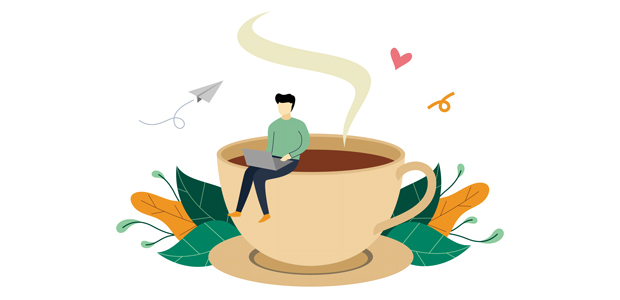
We all know breaks are good for us – so why don’t we take them?
We’ve all had those days. You plough through your to-do list, smashing items off one by one. You get to the end of the day having achieved everything you set out to and yet… you feel awful. You’re probably mentally checking out of tomorrow already. If you have lots of days like this, you’re either heading for burnout, or you’ve already been there and not heeded the lessons.
We’ve also all had those days. Even the easiest tasks feel like wading through treacle. You find yourself booking dental appointments to avoid checking your emails. This kind of unproductivity brings more guilt and shame, as we can’t lean on the cult of busyness like we often do with the former.
Some of us – if we’re lucky – have experienced another type of day. One where tasks are happily ticked off and we’re proud of the work we’re bringing to the world. Crucially, you don’t feel horrendous when it comes to an end.
What if we could actively create these better, more productive work days? And what if the answer to all our hopes and dreams is embarrassingly obvious?
The simple solution is regular breaks.
Breaks are not a panacea (is anything?), but they are a very strong weapon in the war against not only unproductivity, but also it’s common bedfellows: poor mental and physical wellbeing.
The benefits of taking breaks have been documented and evidenced time and again. The robust body of research doesn’t dictate what breaks should be taken, for how long or how often, but it all agrees that breaks should be taken regularly – and that they work.
The importance of high-quality breaks
Let me take a guess about the breaks you take during your work day: scrolling through your phone, eating lunch at your desk, accidentally working through your tea break entirely. Honestly, sometimes they’re necessary. Sometimes you do need to just mindlessly tap through puppy videos.
To really feel a difference, though, we need to be taking high-quality breaks. A high-quality break is an activity that takes the mind – and often the physical self – away from the task at hand to leave you rejuvenated when you return. Some examples are desk stretching, meditation, or even doodling. And a high-quality break needn’t eat into your calendar; you can feel the benefits in as few as five minutes.
No doubt you’ve heard it said that the best ideas come in the shower, or in the gym, or when you’re out for a walk. Often, letting our brains escape from the problems we’re trying to solve is exactly what propels us to our most innovative solutions.
Change needs to come from the top
I doubt that anything I’m telling you is coming as a surprise. All of us know that taking a moment for ourselves makes us work better and feel better. And yet, we have a strangely anti-break work culture. People who take breaks are often seen as slackers, rather than people working smarter and frankly better. We are a nation that loves weekends and bank holidays, but shames work breaks – but imagine enjoying your time off, instead of using it for recovery.
Despite the rise in WFH, making breaks part of a healthy, productive work culture isn’t going to be an overnight success. The change needs to come from the top. But which business doesn’t value productivity? And who among us doesn’t want to get every item on their list done well and feel great while doing it? We – and our companies – need to do ourselves a collective favour, and take a damn break.

